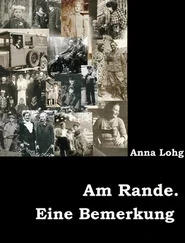I accept the ladle and bring it to my lips. It’s warm and reeks of a bedchamber badly in need of airing out, so I just hold it under my chin and let the steam warm my face.
After breakfast, Nikolai Isaakovich and the two promyshlenniki are led away from the house. I don’t know where they’re going, but neither do they. For a few minutes after they’ve left, men’s voices rise, fall, and then fade away in the direction of the forest.
Before long, I, too, am led out of the house with a group of women and younger men, including the young man who took us to the cove for the herring roe harvest, the one who climbed the greasy rope at the wedding. We follow a trail upstream for a long time and a short time. It forks, and we leave the main trail and begin to climb. Our path rolls, up and down, but mostly up. My thighs ache and I regret that I didn’t eat before we left. I fall behind, but the youth stays with me. He murmurs, “Ha  hitsíliks. Pi
hitsíliks. Pi  ák
ák  iliks.”
iliks.” [44] You’re doing fine. You can make this.
Although I don’t know what he’s saying, I hear encouragement.
Though slow, I maintain a steady pace until we come to a rock fall. The shale that spills down the slope is not stable. I step on a flat, oval rock. It slips. I struggle to stay upright while it clatters down the slope. Once I regain my footing, I try again to focus. By the time we reach the opposite side of the fall, I must rest.
The young man says, “Was yapotala xáxi. Tsá  daslo x wa
daslo x wa  wíki
wíki  .”
.” [45] It’s not hard from this point on. It’s easy from here.
I smile and exaggerate panting. He stops and waits. I think he’s understood.
Then he says something else. He repeats it. It sounds vaguely like cotton. He presses his hand on his chest as he says it again. It’s his name.
“Holpokit,” I repeat and nod.
He laughs—I must have mangled it—and he repeats his name. “Holpokit,” I say again, but I can’t say it the way he does.
Then I press my hand to my chest. “Anna,” I say, trying hard to pronounce the “n.”
He sounds just like the Murzik when he repeats, “Ahda.”
“I’m pleased to make your acquaintance,” I say.
We begin climbing again. We’ll have to speed up if we don’t want to lose the others.
My mother once told the story of a pretty girl she knew when she was young who had long, black hair. Galina was in the forest when she heard her grandfather call. “The problem was,” my mother said, “that her grandfather had died the previous year.” Galina knew it couldn’t really be her grandfather, so she ran home as fast as she could. By the time she got there, her hair had turned to pure silver.
“How?” I cried. “Perhaps she only powdered it to fool everyone.”
“Dear Anya,” my mother said, “may you never come across the leshii yourself. But if you do, you may find out that Galina’s story is true.” She lifted a lock of my own dark hair and let it fall.
In this thick forest, it’s easy to imagine Galina’s story is true. I follow close behind Holpokit, and wonder what it would be like to hear my mother’s voice calling from behind the fallen logs. Would I, despite knowing she couldn’t possibly be here, be driven mad in my search for her? Or would I heed the story of Galina and hurry away?
I wonder what my mother is doing right now. When we meet again, the stories we share will be mine.
We catch up to the others on a slope from which many old trees rise. Their trunks are impossibly straight, and far overhead, their crowns spread like the arms of a chandelier. In Petersburg, a distant cousin of the Tsarina had bolted to her dining hall ceiling an elegant fixture that was the subject of much talk one winter. They said it had a thousand Venetian crystals and two hundred candles set in twelve tiers. It took two servants an hour to light it, and an entire day to dust and polish it. These details spread and earned the chandelier and the Tsarina’s cousin much admiration. No one from Petersburg society will ever see the crowns of these trees swaying overhead, but they are magnificent and just as impressive.
The Quileutes have been waiting. Holpokit and I take places alongside the others, closing up a circle. An old woman whose hair really is all grey, whose voice is low and scratchy, sings. In a moment, she finishes. Then she says, “O yix chik wťsi  atíťo
atíťo  wkiyatilashí
wkiyatilashí  lich ishsi
lich ishsi  woya
woya  wá
wá  al.”
al.” [46] Oh, the great Land, help me harvest some of your plentiful cedar bark.
The group scatters among the trees, laughing, looking overhead. There is a great deal of discussion among them.
The old woman who sang immediately goes to a tree right beside her. Using a sharp stone, she cuts into it. She presses hard and saws back and forth, revealing ropey muscles in her arms. She cuts a straight line, perpendicular to the grain of the bark. Though the incision is only the width of her palm, the bark is thick, and it takes time. Then she pushes the blade underneath the cut until a corner lifts. She jams her fingers under the bark and begins to pull it off the trunk.
She leans back as she pulls, so far back I think her feet will leave the ground. The bark separates from the tree in a strip that ripples up the trunk. The tree releases it with a grudging squeak.
We’re collecting bark—the bark that’s woven into clothing, mats, baskets, hats, rope, and nets. It’s rigid and I don’t know yet how it will transform into the soft material of which dresses and bedclothes are made.
When the strip runs halfway up the trunk, the old woman calls Holpokit. He’s taller. So, when he takes the strip from her and backs away from the tree, he gets extra leverage. He’s also on the uphill side of the tree, so as he climbs the slope, the angle at which he pulls is wider, and therefore, more effective.
When I almost can’t see the top of the strip, it falls, a flopping snake. Everyone jumps back. The newly exposed wood glows like a golden waterfall cascading down the height of the tree.
A woman lifts an end of the bark and, using another tool, begins to peel apart its layers. The outer bark comes off in large chunks and what remains is reddish-brown, like the colour Zhuchka was, and fibrous. It smells of potato. Now I feel hungry.
While the layers of bark are being separated, the old woman cuts the bark of a second tree. After she gets it started, Holpokit pulls it and she goes to a third tree. Around the entire slope, she moves from tree to tree, making only one cut on each tree. Holpokit follows her.
There are many trees here that have had bark harvested on previous visits. The exposed wood is smooth and nestles between outer bark walls that have swollen and closed tightly against the wood to protect it. Far above, the debarked trees look as healthy as any of the others. Are insects boring into the bare wood? I don’t see any. It doesn’t appear the trees are suffering.
Читать дальше

 hitsíliks. Pi
hitsíliks. Pi  ák
ák  daslo x wa
daslo x wa  atíťo
atíťo  wkiyatilashí
wkiyatilashí 










